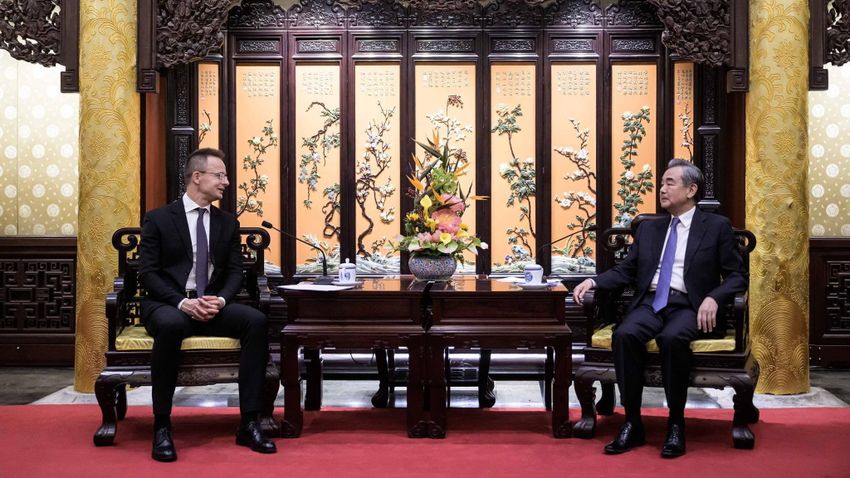A further €3 billion of Chinese automotive investment will come to Hungary in the coming period, further strengthening Hungary’s position as the number one Central European investment destination for the country, announced Minister of Foreign Affairs and Trade Péter Szijjártó in Beijing on Monday.
Following his meeting with Chinese Minister of Commerce Wang Wentao, Szijjártó said that he had held talks with the heads of five major Chinese companies, four of which will invest in Hungary in the electric car sector to serve German car manufacturers.
“A further €3 billion of Chinese automotive investment will come to Hungary in the next period,” he said, adding that these will make a major contribution to sustaining economic growth. He underlined that these investments are all coming to the continent to revitalize the European automotive industry and because of orders from German companies.
“We appreciate the fact that Hungary has become the number one investment destination for Chinese companies in Central Europe,” he said. “We want to keep this process going, (…) so we will continue to encourage Chinese investments, and we will always give maximum support to them.”
Szijjártó stressed that one of the most serious negative consequences of the war in Ukraine is that the world is once again moving towards an economic blockade of various countries, which is completely contrary to Hungarian interests, saying:
“For us, it would be good if the world were to build its operations on interconnections in the coming period, and we want such connectivity instead of blocking (…) We believe that China’s global initiatives serve this purpose, and therefore we support them.”
He added that cooperation between the European Union and China should be based on mutual respect and mutual benefit:
“We do not agree that China should be treated as a risk or a threat. We believe that cooperation with China has huge potential for our partners. We therefore want to continue to develop cooperation between the European Union and China, which obviously does not include, for example, the EU putting Chinese companies on a sanctions list or imposing export restrictions on Chinese companies.”
Hungary has increasingly turned towards China for investment opportunities to jumpstart its economy. The EU, for its part, recognizes the importance of China to the EU economy.
“This international and economic status, as well as our own interests, make it all the more important for Europe to manage its relations with China. And for me, that also shows that decoupling is clearly not viable, desirable or even practical for Europe,” said European Commission President Ursula von der Leyen during a speech last month.





